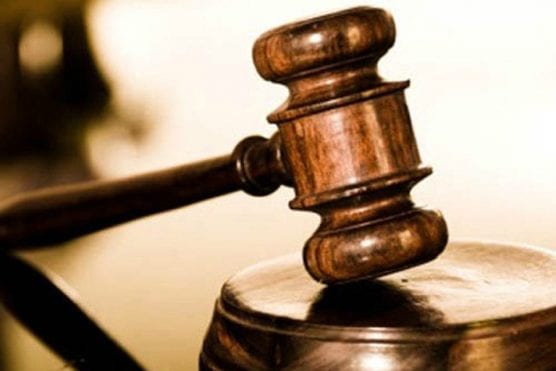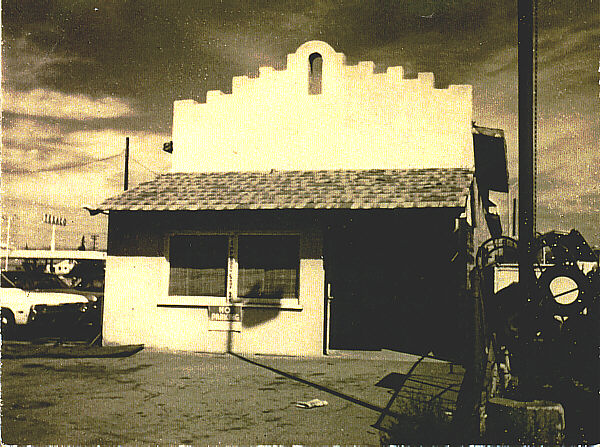Los Angeles County District Attorney Jackie Lacey and Code for America said Thursday that nearly 66,000 marijuana convictions eligible for relief under Proposition 64 will be dismissed as part of their cutting-edge partnership.
The action marks the completion of the five-county Clear My Record pilot to clear marijuana-related convictions eligible for relief under Proposition 64.
The other counties in the pilot include San Francisco, Sacramento, San Joaquin and Contra Costa. In total, these five pilots will help reduce or dismiss more than 85,000 Proposition 64 eligible convictions.
“The dismissal of tens of thousands of old cannabis-related convictions in Los Angeles County will bring much-needed relief to communities of color that disproportionately suffered the unjust consequences of our nation’s drug laws,” Lacey said. “I am privileged to be part of a system dedicated to finding innovative solutions and implementing meaningful criminal justice reform that gives all people the support they need to build the life they deserve.”
“Today’s action marks the completion of our California Clear My Record pilot, through which we will have helped to dismiss and seal more than 85,000 marijuana convictions across the state,” said Evonne Silva, Code for America’s Senior Program Director of Criminal Justice.
“This is a clear demonstration that automatic record clearance is possible at scale and can help to right the wrongs of the failed war on drugs,” Silva said. “Looking forward, Code for America stands at the ready to help all California counties provide this much-needed relief in advance of the July 1, 2020 deadline.”
Prosecutors this week asked a Los Angeles Superior Court judge to dismiss 62,000 felony cannabis convictions for cases that date back to 1961. The District Attorney’s Office also sought the dismissal of approximately 4,000 misdemeanor cannabis possession cases that included cases filed in 10 Los Angeles County cities: Los Angeles, Long Beach, Torrance, Pasadena, Inglewood, Burbank, Santa Monica, Hawthorne, Redondo Beach and Hermosa Beach.
Approximately 53,000 individuals will receive conviction relief through this partnership. Of those, approximately 32% are Black or African American, 20% are White, 45% are Latinx, and 3% are other or unknown.
Proposition 64 identifies three health and safety code sections that qualified for resentencing: cultivation of marijuana, possession for sale of marijuana and sales and/or transport of marijuana, all felonies. The law also includes dismissing possession of marijuana, a misdemeanor.
District Attorney Lacey used additional criteria to go beyond the parameters of the new law to ensure the greatest number of dismissals. Those expanded parameters include persons who are 50 years or older, haven’t had a felony conviction in the past 10 years or have successfully completed probation for cannabis convictions.
Based on these criteria, Code for America created a unique algorithm for the office in order to fast-track the identification of eligible convictions. This technology can analyze eligibility for thousands of convictions in seconds, alleviating the need for DA staff to go through state criminal records one by one to evaluate eligibility, saving time and significant resources.
AB 1793 Implementation
In California, all county District Attorney’s Offices are required to implement AB 1793 by July 1, 2020. Earlier this year, Code for America launched its new Clear My Record Application and Implementation Blueprint, available at no cost and open source to all California counties. These resources allow every District Attorneys’ Office to expedite and streamline review of Proposition 64 convictions.
The Clear My Record Application allows District Attorneys to securely and accurately evaluate eligibility for convictions by reading and interpreting criminal history data from the California Department of Justice. Code for America has received an overwhelming interest from counties in accessing these resources to carry out the law. Code for America stands ready to work with counties that have not yet used this technology to help them automate the record clearance process and provide relief as required by law.
Record Clearance for the Digital Age
The current record clearance process was not designed to reach everyone who is eligible. With the current petition-based process, each person seeking relief must petition the court to clear their records, but this is a time-consuming, expensive, and confusing process. It is no surprise, then, that only 3% of those eligible for relief under Proposition 64 have received it.
Code for America’s pilot partnerships have set the standard for the statewide implementation of AB 1793, which tasks prosecutors with affirmatively reviewing convictions eligible for dismissal or reduction under Proposition 64. This novel approach also creates a blueprint for the future of record clearance for remedies beyond Proposition 64 — the development of policy and technology that expands, streamlines and automates the record clearance process at scale.
Code for America has been making it easier for people to remove eligible convictions from their records through Clear my Record technology since 2016.
To find out if your record has been cleared
To find out if your record has been cleared, or for more information about this initiative, contact the Los Angeles County Public Defender’s Office by phone at (323-760-6763 or visit http://pubdef.lacounty.gov. The Public Defender’s Office will reply to all inquiries.
About Code for America
Code for America believes government must work for the people, and by the people, in the digital age, starting with the people who need it most. We build digital services that enhance government capabilities, and we help others do the same across all levels of government. We organize thousands of volunteers across nearly 80 chapters nationwide who improve government in their local communities. Our goal: a 21st century government that effectively and equitably serves all Americans. Learn more at codeforamerica.org.
Like this:
Like Loading...
Related





 Tweet This
Tweet This Facebook
Facebook Digg This
Digg This Bookmark
Bookmark Stumble
Stumble RSS
RSS



























REAL NAMES ONLY: All posters must use their real individual or business name. This applies equally to Twitter account holders who use a nickname.
0 Comments
You can be the first one to leave a comment.